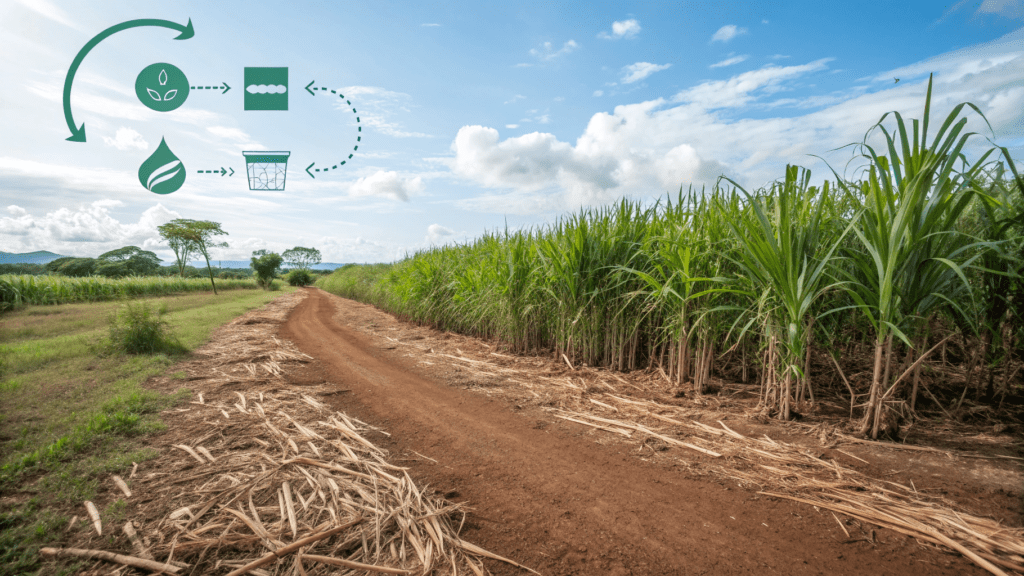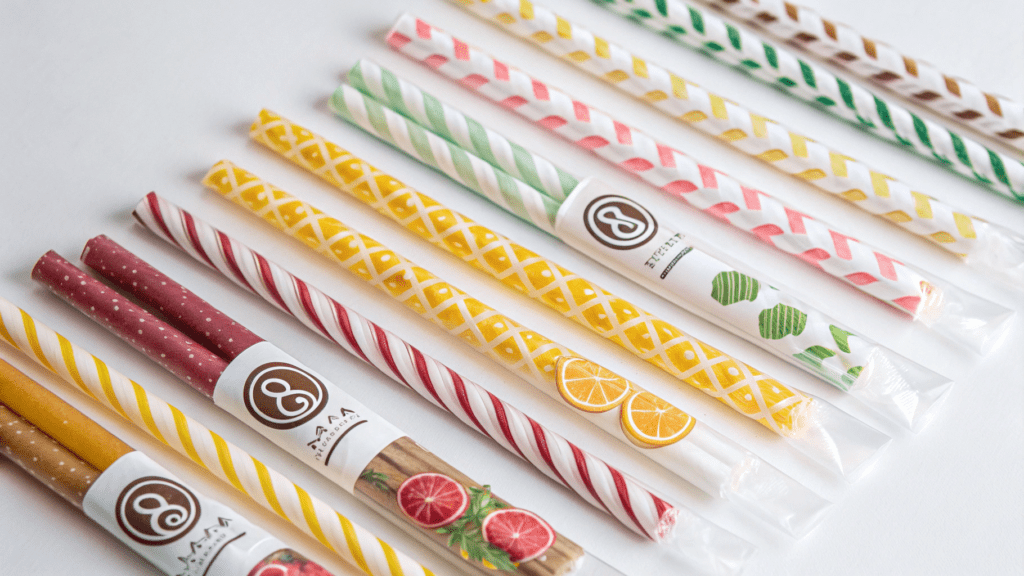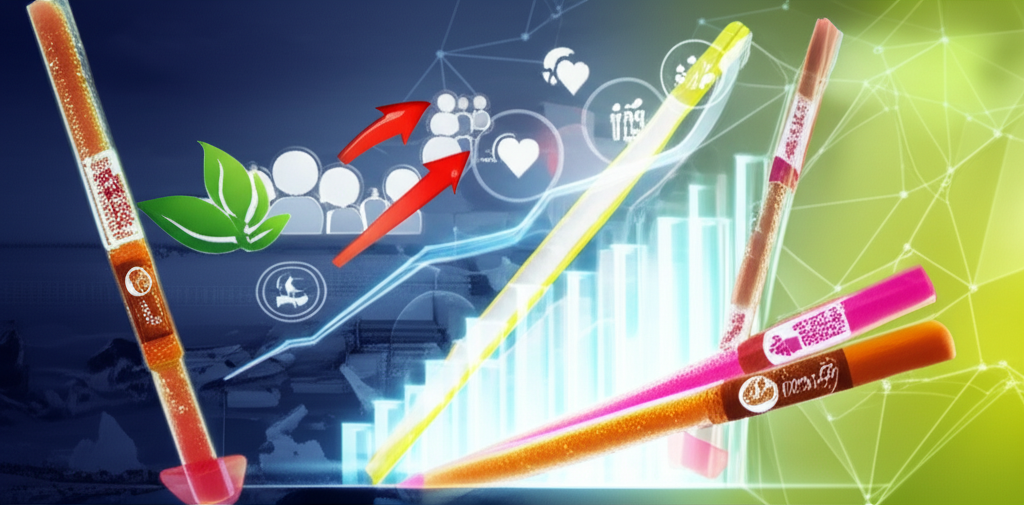A B2B Guide for Hospitality & Foodservice Procurement Managers, Operations Directors, and Sustainability Officers

1. Entwodiksyon pwoblèm endistri konvenkan
Peyizaj mondyal la pou biznis yo ap sibi yon transfòmasyon moniman, kondwi pa yon kriz anviwònman ki pa nye. Chak jou, plis pase yon milya pay plastik yo itilize atravè lemond, ak yon mèg 4% ke yo te efektivman resikle. Figi estrawòdinè sa a kontribye nan gwo polisyon oseyan ak yon kriz fatra plastik ki ap ogmante ki mande aksyon imedyat, desizif. Gouvènman yo ak kò regilasyon yo, sitou atravè Ewòp ak Etazini yo, ap reponn ak entèdiksyon de pli zan pli sevè sou plastik yon sèl-itilize, konvenkan biznis yo chèche altènativ vrèman ekolojik. Si w pa anbrase tranzisyon sa a se pa sèlman yon sipèvizyon etik; li riske domaj repitasyon mak enpòtan, gwo penalite konfòmite, ak yon pèt danjere nan pati nan mache a konpetitè ki chanpyon dirab.
This urgent mandate for change is amplified by a rapidly evolving consumer conscience. Today, sustainability is no longer a niche preference but a core expectation. Research consistently shows that a substantial majority of consumers are willing to pay more for sustainable packaging—over 60% according to a 2020 study by NielsenIQ, while 78% prioritize a sustainable lifestyle, as reported by Capgemini Research Institute in 2020. Businesses that do not demonstrate authentic environmental responsibility risk alienating this growing segment of their customer base. In this shifting market, private label sustainable options, including innovative packaging solutions, now influence 28% of consumer purchasing decisions, offering a direct and powerful path to enhanced brand loyalty and differentiation, according to a 2021 report by McKinsey & Company. For HoReCa businesses, this means a direct impact on customer loyalty and operational costs.
Kriz plastik k ap ogmante ak atant konsomatè k ap evolye yo mande pou biznis HoReCa yo adopte altènativ dirab pou evite risk enpòtan epi pran nouvo opòtinite mache.
Kriz fatra plastik mondyal la mande yon aksyon imedya, desizif nan men biznis yo.
2. Market & Regulation Insights (EU, US, Asia-Pacific)
Gouvènman ak kò regilasyon atravè mond lan ap aplike de pli zan pli entèdiksyon ak restriksyon sou plastik ki sèvi ak yon sèl, ki gen ladan pay. Inyon Ewopeyen an Single-Use Plastics Directive (SUPD) te yon chofè enpòtan, entèdi pay plastik depi jiyè 2021. Ozetazini, pandan ke pa gen yon entèdiksyon federal, anpil eta ak vil yo te adopte pwòp entèdiksyon pa yo, tankou Kalifòni ak Vil Nouyòk. Peyi Azi-Pasifik yo tankou peyi Zend ak Thailand yo tou progresivman elimine plastik pou yon sèl itilizasyon. Règleman sa yo egzije yon chanjman aktif pou biznis Ospitalite ak sèvis manje pou evite amann epi kenbe konfòmite. Pou yon gid konplè sou règleman mondyal pay plastik, tanpri al gade nou anGid konplè pou konfòmite regilasyon.
This regulatory landscape, coupled with consumer demand, makes the choice of sustainable alternatives critical. Below is a comparison of various sustainable straw types:
| Karakteristik / Kalite pay | Edible Sugar Straws | Papier papye | Bagay kann | Réutilisables (Metal/Glas) |
|---|---|---|---|---|
| Enpak anviwònman an | Zero-waste (eaten), 100% biodegradable/compostable | Biodegradable/Compostable, higher production footprint (water/energy) | 100% biodegradable/compostable, made from agricultural waste | Zero waste (reusable), but requires cleaning resources |
| Durability in Cold Liquids | 30-45 minutes (Sorbos), maintains structure | Can become soggy quickly, inconsistent quality | Excellent, lasts over 12 hours without sogginess | Excellent, permanent |
| Flavor/Sensory Impact | Customizable flavors, subtle sweetness, can enhance drink | Often neutral, can impart paper taste | Neutral taste, natural feel | Neutral taste, can be metallic (metal) |
| Hygiene & Packaging | Individually wrapped for freshness & hygiene | Souvan esansyèl, kèk endividyèlman vlope | Souvan esansyèl, kèk endividyèlman vlope | Requires rigorous cleaning & sanitization |
| Eksperyans Konsomatè | Roman, entèaktif, "mini-desè" apre bwè | Ka fwistre si mouye, pèrsu kòm mwens prim | Menm jan ak plastik, men ekolojik-zanmi | Ekolojik-konsyan, men mande pou pote / netwayaj |
| Pri (relatif) | Modere a segondè (akòz personnalisation) | Ba a modere | Modere | Segondè inisyal, ba pou chak itilizasyon |
Règleman mondyal yo ak preferans konsomatè yo ap mennen yon chanjman nan altènativ pay dirab, ak pay sik manjab ki ofri avantaj inik.
Chanjman regilasyon fòse biznis yo adopte altènativ ekolojik-zanmitay pou yon sèl-itilize plastik.

3. Solisyon: Paille sik manjab
Paillettes sik manjab ak etikèt prive yo se yon altènatif zewo-fatra, personnalisable pou Ospitalite ak sèvis manje.
Nan yon mache satire ak reklamasyon jenerik ekolojik-zanmitay, pay sik manjab etikèt prive parèt kòm yon diferans pwisan pou chèn rezèv dirab ou a. Imajine ofri yon pwodwi ki pa sèlman konfòme ak règleman anviwònman an, men tou amelyore eksperyans sansoryèl kliyan an. Chalimo sa yo bay opsyon personnalisation vaste pou gou, koulè, ak gwosè, ki pèmèt ou parfe aliman ak idantite mak ou. Ou ka ofri gou popilè tankou sitwon, frèz, chokola, ak jenjanm, oswa travay ak manifaktirè yo devlope pwofil gou ta ki kreye yon pwodwi vrèman memorab ak entèaktif. Pèsonalize koulè pou matche ak mak antrepriz ou a, tèm sezon yo, oswa kanpay espesifik, bay afè vizyèl ki ranfòse rekonesans mak ak chak ti goute. Pi lwen pase estetik, fonksyonalite a se esansyèl. Paille sik manjab ki vlope endividyèlman asire ijyèn siperyè ak yon lavi etajè pwolonje jiska dezan, sa ki enpòtan pou sèvis manje ak anviwònman an detay. Anbalaj endividyèl prim sa a, ki reziste imidite, pa sèlman ogmante valè ak konvenyans, men tou ofri opòtinite pou mak koutim dirèkteman sou vlope la. Pou anviwònman gwo volim nan sektè HoReCa (Otèl, Restoran, Kafe), pay sa yo adrese bezwen operasyonèl yo lè yo bay yon solisyon ijyenik, yon sèl-itilize ki kenbe entegrite pwodwi pandan y ap san pwoblèm tranzisyon soti nan plastik tradisyonèl yo konfòme, altènatif zewo fatra. Chanjman estratejik sa a diminye risk ki asosye ak evolye entèdiksyon plastik epi asire aderans regilasyon, pwoteje biznis ou kont amann ak piblisite negatif. Anplis, li rasyonalize pwosesis jesyon fatra, siyifikativman diminye depans jete yo epi kontribiye nan yon anprint operasyonèl pi vèt. Pwopagasyon fatra plastik nan oseyan ak dechaj nou yo montre nesesite ijan pou inovasyon sa yo. Pou plis enfòmasyon sou kriz polisyon plastik mondyal la, ou ka fè referans a resous tankou laKowalisyon Polisyon Plastik.
Benefis ki kantite pou HoReCa:
- Reduced Waste & Costs: Elimine jiska 100% nan fatra pay, potansyèlman koupe depans jete fatra pa 5-10% chak ane pou avni gwo volim.
- Eksperyans kliyan amelyore: Ranfòse satisfaksyon kliyan ak lwayote lè yo ofri yon pwodwi roman, entèaktif, ak ekolojik-konsyan, ki mennen nan yon ogmantasyon 15-20% nan mansyone pozitif mak sou medya sosyal.
- Brand Differentiation & Marketing: Swiv gou inik ak personnalisation koulè pou kreye mak memorab touchpoints, atire 10-15% plis kliyan ekolojik-konsyan.
- Regulatory Compliance & Risk Mitigation: Pwoaktivman satisfè entèdiksyon plastik pou yon sèl itilizasyon, evite potansyèl amann ak piblisite negatif, asire operasyon san pwoblèm.
- Improved Hygiene & Shelf Life: Paiyon ki vlope endividyèlman yo ofri yon ijyèn siperyè ak yon etajè lavi 2 ane, sa ki diminye gate ak konpleksite operasyonèl nan anviwònman HoReCa okipe.
Retounen Sosyal sou Envestisman (SROI) Modèl pou HoReCa:
The true impact of adopting edible sugar straws extends far beyond mere compliance; it translates into quantifiable Social Return on Investment (SROI). This holistic modeling framework measures social, environmental, and economic benefits, allowing you to showcase tangible business value. Think of the cost savings from drastically reduced plastic waste, the enhanced brand image resonating with eco-conscious consumers, and the increased sales driven by those who prioritize sustainability. Studies indicate that consumers, particularly younger demographics, are increasingly willing to pay a premium for products with minimized environmental impact, with some reports showing a willingness to pay 12% more on average for such products. This shift in consumer behavior is powerful in both the US and European markets, where sustainability mandates and eco-awareness are strong. Furthermore, the novelty of edible straws can generate significant social media buzz, leading to organic marketing and increased customer acquisition, especially on platforms like TikTok and Instagram, where unique and visually appealing products go viral.
| SROI Varyab | Deskripsyon | Enpak pou HoReCa (Egzanp) |
|---|---|---|
| Valè Rediksyon Dechè | Ekonomi pri nan frè redwi jete fatra ak kontribisyon dechaj yo. | Yon gwo chèn otèl ka ekonomize $5,000-$10,000 chak ane nan jesyon fatra. |
| Amelyorasyon Ekite Mak | Ogmante pèsepsyon mak, lwayote, ak kouvèti medya pozitif. | Amelyore revize sou entènèt (egzanp, +0.5 star Rating), atire 5% plis rezèrvasyon / kliyan. |
| Valè Akizisyon Kliyan | Nouvo kliyan atire pa òf dirab. | Ogmantasyon 10% nan lavant soti nan konsomatè ekolojik-konsyan ki vle peye yon prim 5-10%. |
| Employee Engagement & Retention | Pi wo moral ak woulman redwi akòz aliyman ak valè konpayi yo. | Redwi depans rekritman pa 2-3% akòz retansyon amelyore. |
| Evite Konfòmite Regilasyon | Ekonomi soti nan evite amann ak frè legal ki gen rapò ak entèdiksyon plastik. | Evite amann potansyèl jiska $1,000-$5,000 pou chak ensidan nan zòn reglemante. |
| Social Media & PR Value | Rive òganik ak piblisite pozitif soti nan pwodwi inik, dirab. | Ekivalan a $2,000-$5,000 nan depans maketing nan kontni viral. |
Paillettes sik manjab yo ofri benefis enpòtan, ki ka kwantifye pou HoReCa, tankou rediksyon fatra, imaj mak amelyore, ak gwo Retounen Sosyal sou Envestisman.
Paille sik manjab ofri yon solisyon personnalisable san fatra ak SROI enpòtan pou biznis yo.

4. Industry Misconceptions & Clarifications
Lejann: Paille sik manjab yo twò frajil epi yo fonn imedyatman.
Klarifikasyon:Sa a se yon move konsepsyon komen. Modèn pay sik manjab, espesyalman sa yo ki soti nan manifaktirè renon tankou Sorbos, yo Enjenieri pou durability. Yo fèt pou kenbe estrikti yo nan bwason frèt ak tanperati chanm pou 30-45 minit, ki se plis pase ase tan pou pifò konsomasyon bwè. Yo pa fonn imedyatman oswa vin tranpe tankou kèk iterasyon bonè nan pay papye. Konpozisyon yo pèmèt yo rete fèm pandan y ap bwè, sèlman adousi ase pou yo manje alèz apre sa.
Lejann: Yo pral fè bwason mwen yo twò dous.
Klarifikasyon:Pandan ke yo fè soti nan sik, dous la bay nan yon bwè se minim epi souvan inapèsi, espesyalman nan bwason ki gen aromatize. Fonksyon prensipal la se entegrite estriktirèl, pa kontribisyon gou. Pou moun ki gen pwofil gou espesifik, dous sibtil la ka menm amelyore bwè a, aji kòm yon "mini-desè" nan fen an. Manifakti yo ofri tou opsyon net ki gen gou.
Lejann: Paille manjab yo pa ijyenik pou itilize HoReCa gwo volim.
Klarifikasyon:Sa a pa kòrèk, sitou pou pay sik manjab ki vlope endividyèlman. Anbalaj endividyèl la bay yon baryè pwoteksyon, asire chak pay rete esteril ak intact jiskaske yo itilize. Sa a se yon avantaj enpòtan nan anviwònman sèvis manje ki gen anpil trafik kote ijyèn se esansyèl, souvan depase estanda ijyèn yo nan altènativ ki pake an gwo. Lavi etajè de ane a plis asire entegrite pwodwi ak sekirite.
Paillettes sik manjab yo dirab, yon ti kras enpak gou bwè, epi yo trè ijyenik, efase move konsepsyon endistri komen.
Paille sik manjab yo dirab, ijyenik, epi yo pa twò sikre bwason.
5. B2B Customization & Supply Chain Optimization
Future-proofing your brand in today’s rapidly evolving market necessitates a strategic embrace of sustainability, with private label edible sugar straws presenting a compelling opportunity. As B2B buyers, your procurement considerations should focus on quality assurance and operational fit. Always assess manufacturer certifications such as FDA, HACCP, and ISO 22000 to ensure the highest standards of food safety and quality in edible straw production. Request samples for in-house testing to confirm durability across various beverage types and to meet your desired operational conditions. Finally, negotiate minimum order quantities (MOQs), production lead times, and flexible pricing models, especially for private label flavor and color customization, to align with your business scale and market demands.
Envestisman sa a se plis pase jis yon desizyon akizisyon; se yon mouvman èstratejik pou montre angajman w pou otantik dirab, diferansye mak ou nan yon mache de pli zan pli ki gen anpil moun ak atire kliyan ekolojik-konsyan. Lè w adopte pay sik manjab ak etikèt prive, ou transfòme yon efò konfòmite obligatwa nan yon istwa mak konvenkan ki pwofondman rezonans ak konsomatè modèn yo ak bati lwayote ki dire lontan. Apwòch pwoaktif sa a pozisyon mak ou kòm yon lidè endistri nan inovasyon ak jerans anviwònman an, mete yon referans pou konpetitè ak kondwi yon sik pozitif nan pratik biznis responsab.
Akizisyon estratejik payi sik manjab etikèt prive, ki konsantre sou sètifikasyon ak personnalisation, optimize chèn ekipman ak amelyore pozisyon mak.
Achtè B2B yo ta dwe priyorite pay sik manjab ki sètifye, personnalisable pou entegrasyon pi bon nan chèn ekipman pou.

6. Bonjan apèl pou aksyon
Now is the time to seize the sustainable advantage and elevate your brand with edible sugar straws. The global edible straw market is projected to reach over USD 1.4 billion by 2033, signaling a booming sector ready for market leaders. By capitalizing on this rapid growth, you can secure your share in a burgeoning market. Cultivate a loyal customer base by offering a unique, responsible, and memorable product experience that aligns perfectly with evolving consumer values. This commitment will significantly enhance your corporate social responsibility (CSR) profile, translating ethical practices into tangible business growth and positive public perception.
Aji kounye a pou pwofite mache pay manjab k ap grandi a, amelyore CSR mak ou a, epi kiltive yon baz kliyan fidèl, ki gen konsyans ekolojik.
Sezi avantaj dirab la kounye a pou elve mak ou ak pay sik manjab.
Kesyon yo poze souvan sou pay sik manjab
1. Kisa pay sik manjab ye?
Chalimo sik manjab yo se pay pou bwè inovatè, ekolojik-zanmi ki fèt sitou nan sik ak lòt engredyan natirèl. Yo fèt pou yo manje apre yo fin itilize yo, kite zewo fatra.
2. Konbyen tan pay sik manjab dire nan yon bwè?
Bon kalite pay sik manjab, tankou sa yo ki soti nan Sips, kenbe estrikti yo nan likid frèt pou 30-45 minit, bay kliyan anpil tan yo jwi bwason yo san yo pa tranpe.
3. Èske pay sik manjab ka Customized pou mak mwen an?
Wi. Yo ka Customized payi sik manjab sou etikèt prive gou, koulè, ak anbalaj endividyèl ak logo mak ou a, ede amelyore idantite mak ak eksperyans kliyan.
4. Èske pay sik manjab ijyenik pou anviwònman sèvis manje?
Absoliman. Lè endividyèlman vlope, pay sik manjab ofri ijyèn siperyè, yon lavi etajè ki rive jiska de zan, ak konfòmite ak estanda sekirite manje strik - ideyal pou gwo volim operasyon HoReCa.
5. Ki sa ki se Retounen Sosyal sou Envestisman (SROI) nan itilize pay sik manjab?
SROI a gen ladann redwi depans pou jete fatra plastik, amelyore imaj mak ak konsomatè ekolojik-konsyan, ogmante lavant yo soti nan desizyon acha ki baze sou dirab, ak pozitif sou medya sosyal - vire pratik etik nan kwasans biznis mezirab.






